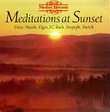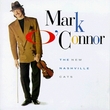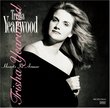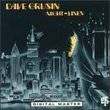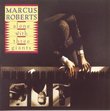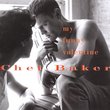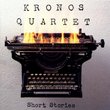| All Artists: Serge Rachmaninov, Beaux Arts Trio, Menahem Pressler, Isidore Cohen, Bernard Greenhouse Title: Rachmaninoff: The Elegiac Piano Trios Members Wishing: 1 Total Copies: 0 Label: Philips Import Release Date: 7/14/1987 Album Type: Import Genre: Classical Style: Chamber Music Number of Discs: 1 SwapaCD Credits: 1 UPC: 028942017528 |
Search - Serge Rachmaninov, Beaux Arts Trio, Menahem Pressler :: Rachmaninoff: The Elegiac Piano Trios
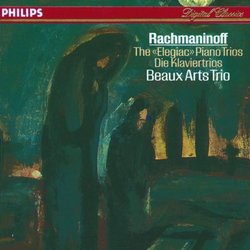 | Serge Rachmaninov, Beaux Arts Trio, Menahem Pressler Rachmaninoff: The Elegiac Piano Trios Genre: Classical
|
Larger Image |
CD DetailsSimilar CDs
Similarly Requested CDs
|
CD ReviewsWith ethos, pathos and logos. Interplanetary Funksmanship | Vanilla Suburbs, USA | 05/16/2005 (5 out of 5 stars) "These two Piano Trios are among Rachmaninoff's lesser known works, but not deservedly so. Rachmaninoff's major orchestral works (especially for piano and orchestra) tend to so overpower listeners of his music that - instead of seeking out other works by the Russian master - they search instead for other performances of their favourite works (I'm guilty of this as well, so I'm not meaning to cast any stones here). The Elegiac Trios were composed in 1893 and 1894 as a tribute to the memory of Rachmaninoff's mentor, composer Pyotr Illyich Tchaikovsky, who had tragically commited suicide by drinking unboiled water, tainted with cholera bacteria. They reflect the obvious sorrow Rachmaninoff must have felt at the loss of his friend, and are the most somber pieces to emerge from his pen. Like Isle of the Dead, the subject of death is rendered with drama and pathos. Yet unlike Isle, the trios treat death in a more wistful and less defiant tone; the trios are more of a eulogy than the overwhelming catharsis of Die Toteninsel. The Beaux Arts Trio is more than up to the task of performing this music of passion and loss. Founded in 1955, the Beaux Arts is one of the most renowned of chamber music ensembles. The First Trio is a one movement piece, which beautifully and energetically encapsulises all the emotions that Rachmaninoff clearly intended. They especially evince the piece's depth and maturity (which would be surprising for any other composer of twenty years of age, save the dark, enigmatic Rachmaninoff). The Second Trio is a massive composition, written in three movements, with a playing time of 47 minutes, quite long by standards of chamber music, and longer than any of Rachmaninoff's works for piano and orchestra (including the unedited version of the Third Concerto). Both trios are anchored by the forthright pianism of Pressler, whose range conveys the whole palette of Rachmaninovian emotions, at times forceful, at others gentle and compassionate, yet always persuasively. Cohen's violin imparts the life themes with dignity, with an unsettling mixture of dolce and con funebre. Greenhouse's cello is warm, and full of vibrant colour and texture, yet always reminding the listener death's inevitability. As a unit, the members of the Beaux Arts execute the piece with all the polish, fortitude and panache of a Special Forces platoon. Fortunately for this listener, this recording was my introduction to the Elegiac Trios, for you can hear the care and commitment that the musicians have for this work. Like all virtuoso ensembles, the Beaux Arts relate the piece with individuality, allowing the listener to hear each instrument discretely. Yet, what separates the Beaux Arts from lesser groups is their ability to communicate the music with one voice and singularity of purpose. The recording itself by Philips has a very warm and three-dimensional sound; this is one of the few CDs I own where I don't have to turn the treble down much. It features a full frequency range, allowing the listener to soak in every nuance and subtlety, yet does not possess an annoyingly vast dynamic range that causes you to run for the volume knob every five minutes. To sum up: This recording will imbue you with sorrow for Tchaikovsky's passing, a great respect for Rachmaninoff's gesture and pleasure for your ears, soul and mind." Intimate, personal Rachmaninov Stephen J. Snyder | Lancaster, Texas United States | 02/02/2006 (5 out of 5 stars) "Not a huge writer of chamber works (perhaps in part a sad side effect of having to hit the road as a concert performer after escaping post-Revolution USSR penniless), these two trios provide a more intimate look at Rachmaninov than his large scale orchestral works always do. Like the other reviewer, this particular CD was my introduction to these trios. It was also my introduction to the Beaux Arts Trio, and the double introduction was a wonderful one. The statement about death and loss they make is not quite detached, but indeed introspective throughout, though that introspection is in different levels and expressed in different ways. The Beaux Arts delivers a fine performance here. That's perhaps aided by this long-time trio being less "explosive" or hyperkinetic than some modern groupings; they bring a refinement of style to these trios that suits them well. The performance quality is enhanced by very good recording quality; the sound is neither flat nor overmiked." Heartfelt rendition! Hiram Gomez Pardo | Valencia, Venezuela | 11/16/2006 (5 out of 5 stars) "Among the annals of the Russian way of thinking and feeling there is a special menaing of the word grief. As a matter of fact, Tarkovsky stated once, the febrile Russian grief is impossible to be understood in case you are not from that country. I guess I feel due my great-grandfather was Russian, and perhaps this circumstance has brought me so near respect to this work.
That's why these Elegiac Trios have such intense emotive sentiment I have not known about any other similar homage loaded of such profundity and profound emotional profile. The Op 9 is by itself a work of a very young composer but the level of expression makes us to forget all the technical problems you migh argue in favor or vice versa. The Beaux Arts Trio made a splensid reading about this emtoive homage in Tchaikovsky's memory. Go for these invaluable performances." |

 Track Listings (4) - Disc #1
Track Listings (4) - Disc #1



